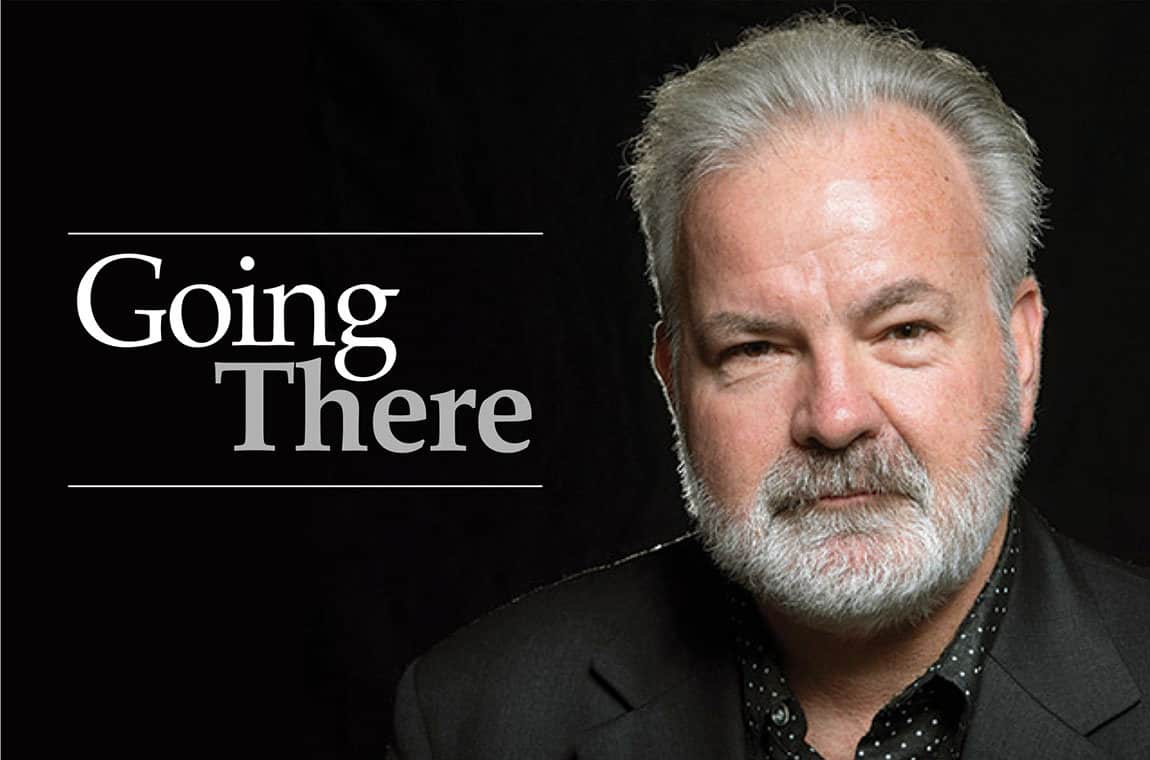Mistakes are part of the business of journalism, and life

by Mick Rhodes | editor@claremont-courier.com
Persnickety readers likely noticed a headline on page 14 of last week’s COURIER: “Casa Colina saltues its outgoing chief.”
It was a less than wonderful feeling to wake up last Friday morning, pop open the paper, and see this.
Let’s get this out of the way up front: I’m not fishing for sympathy. I’m just venting, apologizing for the error, and hopefully providing some context.
Newspaper editing is clearly a gig that will keep you humble. I’ve made mistakes during my brief tenure, and I’ll make some more. But, just like in the rest of life, we gotta keep keepin’ on, hopefully wiser.
All journalists who’ve been in the business for a few years know the feelings of dread and regret when something slips by us. We take our lumps and endeavor to not make the same mistake again.
The COURIER usually publishes eight to 12 stories in each edition, about half of them full-length, 1,000 words or so, the others shorter. My job is to read every word in every story, make edits where necessary, check facts, double-check items that are particularly sensitive or feature unusual spellings, and then drop those files into our edited stories folder. After that, we have four, sometimes five sets of eyes on the copy as we print out proof pages on Thursday in advance of sending the digital files off to be made into our physical newspaper.
So, with all these guardrails in place, how did Casa Colina end up “saltuing” its outgoing CEO? If I knew I’d confess. It was just one of those very human moments when all the human and digital defenders of proper English failed en masse.
Thankfully, we keep good company. Even the very best newspaper in the world (fight me!) The New York Times, makes mistakes. Many, in fact.
“The fact is, The New York Times misspells names at a ferocious rate — famous names, obscure names, names of the dead in their obituaries, names of the living in their wedding announcements, household names from Hollywood, names of Cabinet officers, sports figures, the shoe bomber, the film critic for The Daily News in New York and, astonishingly and repeatedly, Sulzberger, the name of the family that owns The New York Times,” wrote columnist Clark Hoyt (and yes, I doublechecked that spelling) back in 2007.
See? The Old Gray Lady is human too.
But mistakes — a litany of therapists have informed me over the years — are not what’s important: it’s how one reacts to these missteps that make the difference between self-awareness and the dreaded alternative of inertia. So, my reaction to last week’s latest public gaffe is to pledge to be more vigilant, and then move on.
And it’s with this newfound enlightenment that I go forth into the rest of my career safe in the knowledge that with a little luck and a lot of diligence, perhaps I’ll screw up less.
As I age, less gracefully than rapidly, I tend to get less worked up about foibles, my own and everyone else’s. Most of us are doing our best, I’ve come to believe. Yeah, some are doing their worst, but these are, in my experience, the exception.
My grandfather used to tell me, “Never do anything you wouldn’t want your mother to see you doing.” When I was young and wild, traveling the highways playing music and carousing, I thought this ridiculous advice. Of course I didn’t want my mother knowing what I was up to, because some of it certainly wasn’t, well, family friendly.
But now, as an American of Advanced Age, I get a lot more mileage out of my grandfather’s wisdom. His words weren’t meant to be taken literally, but metaphorically. And with that understanding it’s a solid credo.
Nowadays when confronted with my shortcomings — a regular occurrence in my business and as a father of four — I favor complete transparency over excuses. It’s just easier and faster. And, of course as someone rapidly approaching my sixties, time is an increasingly limited commodity.
I’ve always told my kids to “look in the mirror” when things go wrong and be very sure they had nothing do with the problem before they go blaming someone or something else. I hope they take it to heart, because to me there are few things more distasteful than a grown-ass man or woman lashing out at the world when they fall short on something.
This leads me back to that unfortunate headline from last week, and my ownership of said blemish. Human beings, even ones who work for The New York Times, are just going to make mistakes. Count on it. No matter the earnestly devised guardrails in place, those exacting, determined little linguistic landmines will never relent.
All this is to say I’m resigned to it. Mistakes are a feature — not a glitch — in an otherwise orderly and mathematically perfect organization of words and images on pages of newsprint. There I said it. My therapist(s) would be proud.
I mean, no matter the level of preparation, even the best in the business have their off days.
Siht happens.
1 Comment
Submit a Comment
You must be logged in to post a comment.







How profound! Ml Opotowsky